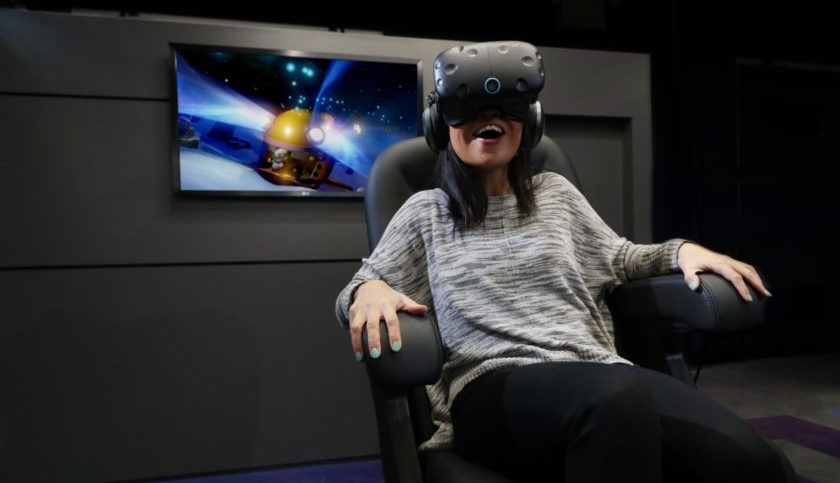Connections

IMAX CEO: Company Encouraged by Results of First VR Centre
Story Highlights
IMAX is encouraged by the early results of its first Virtual Reality (VR) Centre, in Los Angeles, which attracted more than 7,000 attendees since opening Jan. 6, according to company CEO Richard Gelfond.
Sales and occupancy figures at the “flagship” IMAX Virtual Reality Centre have been “trending ahead of our expectations” since opening, he said Feb. 23, during the company’s earnings call for the fourth quarter (ended Dec. 31).
“After we reviewed the market landscape and started to model out what the VR business could mean to us, we have come to believe there is a significant opportunity in eventicizing VR in a similar way to how IMAX is known to eventicize movies,” he told analysts. Gelfond also said he believed that allowing consumers to experience VR “without having to invest thousands of dollars on in-home VR technology, is a great way to kick-start the industry.” Although it’s “still very early, we believe this approach to the market is already beginning to be proven out in the marketplace,” he said.
IMAX is also “seeing strong momentum in building out our content and distribution partnerships,” he went on to say. The company recently announced content deals with French video game company Ubisoft and the Skydance Interactive division of Skydance Media to release five VR games at the Imax VR locations. On the hardware front, IMAX already partnered with HTC, Google and Acer. IMAX and Google said May 19 that they were developing a “cinema-grade” IMAX VR camera to create 3D 360-degree content. IMAX said one day later it teamed with Starbreeze to create a “premium” VR experience using the StarVR headsets that provide a 210-degree full peripheral field of view. As part of that deal, Starbreeze is making its existing library of VR games available to IMAX VR Centres.
IMAX plans to open four additional pilot VR locations in addition to the ones that were previously announced in Los Angeles and Manchester, England, for a total of six, Gelfond said Feb. 23, adding; “We expect most if not all to be opened by the middle of the year.” But he said in September that IMAX probably wouldn’t be expanding the VR Centres nationwide in the U.S. for another two years.
To further IMAX’s development of new VR content, the company already completed the initial phase of its $50 million VR fund with strategic investors that include China Media Capital and Creative Artists Agency. IMAX expects to sign content deals with “a number of promising VR companies over the coming months,” Gelfond said Feb. 23.
Regarding IMAX investments in VR and other original content, the company intends to structure such deals to be “relatively low risk, high potential return opportunities,” he said. If successful, those “new initiatives have the ability to strengthen the IMAX core theatre business over time” also, he told analysts.
IMAX’s new business initiatives also include its recent deal with Disney’s ABC and Marvel divisions under which it will exclusively exhibit the two pilot episodes of the TV series “Inhumans” at IMAX theaters in early September.
The company expects operational expenditures for new initiatives will be in the $16 million-$18 million range in 2017, CFO Patrick McClymont said on the call. “We expect the majority of this investment to be in VR” and the IMAX Home Entertainment division, “with a lesser expense coming from our Marvel deal,” he told analysts. He added that, regarding VR, “most of the incremental investment relates to opening five additional VR Centres, as well as the investment in our cinema-grade VR camera and ongoing partnership with Google.” Those investments will allow IMAX to “increasingly leverage our relationships with filmmakers, exhibitors and studios, and should help drive our VR business to the next level,” he said.
IMAX shares were up 4.25% at $32.47 in early afternoon trading Feb. 24 despite reporting fourth-quarter profit and revenue that were weaker than a year earlier. Profit fell to $8.9 million (13 cents a share) from $22.5 million (33 cents a share), while revenue dropped to $106.9 million from $119.3 million.
As the company looks to 2017 and beyond, Gelfond said “we believe our robust theater network is very well positioned to take advantage of the promising slates” of theatrical movie releases that are coming.









